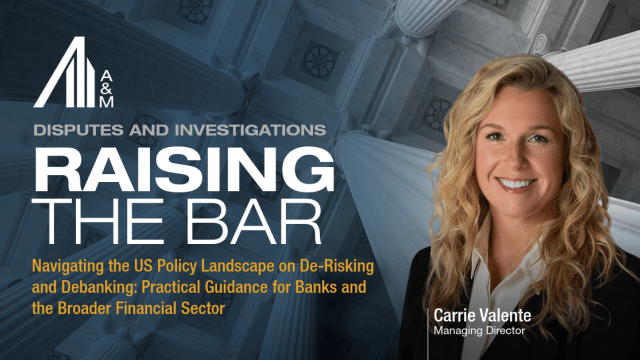The Changing Landscape of Corporate Governance: Best Practices for Board Directors
A trend towards stricter regulatory requirements around environmental, social and governance (ESG) reporting and due diligence in Europe in the past year is ramping up pressure on corporate boards to integrate due diligence practices into their governance structures, ensuring oversight and accountability for identifying, preventing and mitigating adverse impacts arising from their company’s own operations or those of their company’s business partners. This regulatory burden is adding to the host of challenges boards are grappling with, from a difficult economic climate to rising geopolitical tensions, climate emergencies and supply chain disruptions.
While the board’s role was historically seen as more passive – providing guidance and oversight to companies – directors’ duties relating to corporate governance are becoming more active and complex, with the expected scope of oversight including human rights, diversity policies and sustainability. The latter, in particular, has become a strong focus of attention. A recent study showed 70% of board members in Europe have increased the time spent on sustainability discussions[1], even as compliance with more “traditional” areas of legislation, such as anti-money laundering, is growing more fragmented and burdensome.
On the regulatory front, the increasing scope and complexity of initiatives introduced in the European Union to ensure long-term value creation and embed sustainability into corporate governance across all sectors is placing more responsibilities on directors. The Corporate Sustainability Due Diligence Directive (CSDDD), which came into force earlier this year, is the latest in a series of such legislations and has wide ramifications for both EU and non-EU companies operating in the region.
This increasingly heavy agenda is taking a toll on the board’s ability to execute effectively on strategy. Incoherent or complex regulation emerged as the top risk to competitiveness in Europe, in a poll of CEOs and Chairs in late 2023[2]. Some companies that operate globally are even withdrawing from regions they consider too complicated or risky.[3]
Boards must therefore adapt to these shifting tides by embracing a more holistic strategic approach, especially when it comes to sustainability, or risk being caught off-guard in challenging situations.
Corporate governance and sustainability efforts
European regulators have introduced a number of initiatives in recent years to promote responsible business practices, with a sharp focus on sustainability and ESG factors. These include the following:[4]
- Non-Financial Reporting Directive (NFRD)[5]: Introduced in 2014, it is aimed at improving transparency in large public interest EU companies through the disclosure of non-financial information, particularly around environmental, social and employee matters, respect for human rights, anti-corruption and bribery matters.
- EU taxonomy for sustainable activities[6]: The taxonomy regulation was aimed at creating an EU-wide classification system that defined criteria for economic activities aligned with the EU’s net zero 2050 goal and broader environmental goals. It entered into force in 2020.
- Sustainable Finance Disclosure Regulation (SFDR)[7]: Aimed at promoting investments around sustainability, this regulation came into effect in 2021. It required asset managers and financial advisors to disclose information about the environmental and social impact of their investments.
- Corporate Sustainability Reporting Directive (CSRD)[8]: Proposed as an amendment to NFRD, the CSRD came into force in 2023, significantly increasing the scope of required sustainability reporting to include human rights, biodiversity and supply chain due diligence. It required a broader set of companies, including listed small and medium enterprises and some non-EU companies with a significant EU revenue footprint, to report on sustainability.
- Corporate Sustainability Due Diligence Directive (CSDDD)[9]: In parallel to the CSRD, the European Parliament adopted the CSDDD, which introduces mandatory human rights and environmental due diligence requirements for large EU and non-EU companies operating in the EU. This directive came into force on 25 July 2024 and EU Member States must adopt and publish the laws, regulations and administrative provisions necessary to comply by 26 July 2026. These new rules will become applicable to companies a year later with a staggered phase-in between three and five years post-entry into force[10].[11]
Given the tight deadline for CSDDD implementation, it is crucial for boards to understand their obligations around this latest legislation well in time, particularly as several companies also fall under the scope of CSRD, requiring careful consideration of several corporate governance aspects and advanced planning. In the next section we will take a closer look at the requirements of CSDDD and lay out a new approach to corporate governance that can help alleviate the growing burden on directors.
CSDDD in focus
The CSDDD imposes substantial due diligence obligations on large EU and non-EU companies[12] to assess and address human rights and environmental impacts across their operations and the operations of their business partners. It shifts corporate responsibility from a voluntary framework[13] to a mandatory one, introducing significant potential liabilities for businesses that fail to comply with its obligations.
More specifically, as part of their overarching duty to manage a company and promote its success, board directors have to now be responsible for “the identification, and where necessary, prioritisation, prevention and mitigation, bringing to an end, minimisation and remediation of actual or potential adverse human rights and environmental impacts connected with [the company’s] own operations, operations of [its] subsidiaries and of [its] business partners in the chain of activities[14] of the [company]”[15]. Notably, as per CSDDD, the parent company will be responsible for enforcing due diligence across its subsidiaries. Therefore, directors must consider the long-term impact of their decisions and ensure that sustainable practices are embedded throughout their organisation as well as within business partners across the “chain of activities”.
A new approach to governance
With boards facing pressure from multiple sources, a broader, multi-stakeholder approach to governance is required rather than the shareholder-centric approach of the past few decades. By planning and adopting a holistic strategy towards sustainability goals in alignment with regulatory requirements, there is a significant opportunity for boards to truly create long-term value for their businesses in alignment with the interests of all stakeholders, including shareholders, employees, customers, suppliers and the community.
In fact, compliance with these regulations is becoming a driver for innovation and competitive differentiation. Businesses that meet or exceed regulatory expectations in areas such as environmental impact, human rights and ethical governance are more likely to be recognized as leaders in these critical areas. This can create new business opportunities such as access to green financing and entry into sustainability-conscious markets. Given the shift in societal expectations around sustainability in recent years, incorporating ESG goals into the company’s DNA can also help attract young talent, boost employee morale and increase customer loyalty.[16]
As a more direct impact on business operations, this new approach will necessarily warrant enhancements to risk management, risk-appetite setting, risk identification and due diligence processes. Boards will have to take steps that address stakeholder impact, proactively manage risks, invest in remediation and compliance and maintain a strong corporate culture.
They will also need to establish accessible complaint mechanisms, monitor the effectiveness of due diligence measures and report on the matters directly covered under the CSDDD.
Best practices for board directors in regulatory compliance
Because of their responsibility of overseeing regulatory compliance, directors need to make sure management implements effective compliance programs that are aligned with the latest regulatory changes. Here we highlight some best practices for the board to consider when incorporating sustainability goals into their business objectives, bearing in mind the various legislations they must adhere to:
- Accountability and integration: In the case of CSDDD, directors are responsible for embedding sustainability and due diligence into the organization’s governance structures, relevant policies and risk management systems. This includes establishing clear lines of accountability, ensuring that the board oversees sustainability matters effectively, and integrating sustainability reporting into regular board discussions[17]. It is important to note that the reporting requirements of CSDDD are in alignment with that of the CSRD, meaning companies that fall within the scope of both regulations will not need separate reporting for each.
- Risk-based approach to due diligence: Directors should also ensure the business and partners – both upstream (e.g. suppliers) and downstream (e.g. product distribution, transport and storage) – are conducting risk-based human rights and environmental due diligence[18]. For instance, due diligence implies developing and implementing so-called “prevention action plans”, including by obtaining contractual assurances from direct business partners and subsequently verifying compliance[19]. Companies covered by the directive should ensure due diligence not just regarding their own operations, but also regarding the activities of all entities in their chains of activities with which they have direct and indirect business relationships. This entails an in-depth periodic assessment of the company’s operations, those of its subsidiaries and – where related to their chains of activities – those of their business partners, to identify general areas where adverse impacts are most likely to occur and to be most severe.
- Stakeholder engagement: Engagement with business partners, suppliers and subsidiaries should begin at an early stage and be revisited periodically.
- Implementation of the due diligence strategy: Due diligence strategy should be integrated into the company’s operations by effective allocation of human, financial and technical resources necessary for effective implementation. This process includes the exercise of contractual audit rights to monitor and verify compliance throughout the supply chain, ensuring that due diligence measures are consistently applied across business relationships.
- Digital tools for efficient monitoring and reporting: Effective compliance programs should embrace digital tools to streamline and enhance regulatory compliance monitoring and reporting – especially as new regulations like the CSDDD broaden and deepen the scope of due diligence to include oversight of subsidiaries, business partners and suppliers.
- Training at all levels: Boards should ensure sufficient training across the board so that staff at all levels understand regulatory compliance requirements, and so directors are educated on ongoing risks and changes to the regulatory environment.
- Understanding of regional differences: With companies often operating across different jurisdictions, the challenge is to look for strategies that show an understanding of the complexities of global operations and respect for regional regulatory nuances, including the use of specialized legal expertise and localized compliance teams[20].
In conclusion, board directors’ responsibilities are becoming broader and more complex as they are required to make critical decisions along the “chain of activities.” With key directives from the EU throwing a sharp focus on corporate governance and sustainability, directors should play a more active part in ensuring business objectives are aligned with adherence to regulatory demands. By transitioning from a shareholder-centric view to a more holistic approach to corporate governance, boards can drive innovation and help create long-term business value for their companies.
Read Past Raising the Bar Issues
[4] https://www.alvarezandmarsal.com/insights/corporate-governance-how-are-burdens-growing-company-directors
[5] See in particular Recital 6 and Article 19a of Directive 2014/95/EU of the European Parliament and of the Council of 22 October 2014 amending Directive 2013/34/EU regarding the disclosure of non-financial and diversity information by certain large undertakings and groups; https://eur-lex.europa.eu/legal-content/EN/TXT/?uri=celex%3A32014L0095.
[6] Regulation (EU) 2020/852 of the European Parliament and of the Council of 18 June 2020 on the establishment of a framework to facilitate sustainable investment, and amending Regulation (EU) 2019/2088; see https://eur-lex.europa.eu/legal-content/EN/TXT/?uri=CELEX:32020R0852
[7] Regulation (EU) 2019/2088 of the European Parliament and of the Council of 27 November 2019 on sustainability‐related disclosures in the financial services sector; https://eur-lex.europa.eu/eli/reg/2019/2088/oj.
[8] Directive (EU) 2022/2464 of the European Parliament and of the Council of 14 December 2022 amending Regulation (EU) No 537/2014, Directive 2004/109/EC, Directive 2006/43/EC and Directive 2013/34/EU, as regards corporate sustainability reporting; https://eur-lex.europa.eu/legal-content/EN/TXT/?uri=CELEX:32022L2464. The transposition deadline for the CSRD is July 6, 2024.
[9] Directive (EU) 2024/1760 of the European Parliament and of the Council of 13 June 2024 on corporate sustainability due diligence and amending Directive (EU) 2019/1937 and Regulation (EU) 2023/2859 (Text with EEA relevance); see https://eur-lex.europa.eu/legal-content/EN/TXT/?uri=CELEX%3A32024L1760.
[10] More specifically:
(i) In 2027 for EU companies with over 5000 employees and a worldwide turnover of more than 1500 million euros, and non-EU companies generating a net turnover of more than 1500 million euros in the EU.
(ii) In 2028 for EU companies with over 3000 employees and a worldwide turnover of 900 million euros and non-EU companies generating a net turnover of more than 900 million euros in the EU.
(iii) In 2029 for all remaining companies within the Directive’s scope.
[11] The CSDDD provides that “if a provision conflicts with another EU legislative act pursuing the same objectives and providing for more extensive or more specific obligations, that other EU legislative act shall prevail”; see Article 1(3). Obligations under the CSDDD will apply in addition to other more specific, or potentially stricter due diligence obligations under other EU laws, such as the Conflict Minerals Regulation, the Batteries Regulation, the Deforestation Regulation, and the forthcoming Forced Labour Regulation.
[12] The thresholds for in-scope 'companies' are set out in Article 3(1)(a) of the CSDDD.
[13] To date, international standards have sought to help companies address these impacts (e.g., (i) the UN Guiding Principles on Business and Human Rights, https://www.business-humanrights.org/en/big-issues/governing-business-human-rights/un-guiding-principles/; (ii) the OECD Guidelines for Multinational Enterprises; the Guidance for Responsible Business Conduct, https://www.mofa.go.jp/files/100586176.pdf); and (iii) the International Labour Organization’s Tripartite Declaration of Principles concerning Multinational Enterprises and Social Policy, ), however these standards are voluntary and not legally enforceable.
[14] Unlike previous drafts which referred to the entire “value chain,” the final text of CSDDD makes reference to “chain of activities”; see Article 8; see also EU Corporate Sustainability Due Diligence Directive (CSDDD) passed by EU Parliament: What are the implications? | Global law firm | Norton Rose Fulbright.
[15] See Recital 16 of the CSDDD.
[16] https://knowledge.wharton.upenn.edu/article/the-missing-link-between-esg-and-corporate-innovation/
[17] https://www.ardeainternational.com/thinking/understanding-directors-duties-with-the-new-corporate-sustainability-due-diligence-directive/
[18] Articles 7 to 16 of the CSDDD.
[19] Recital 46 of the CSDDD.



